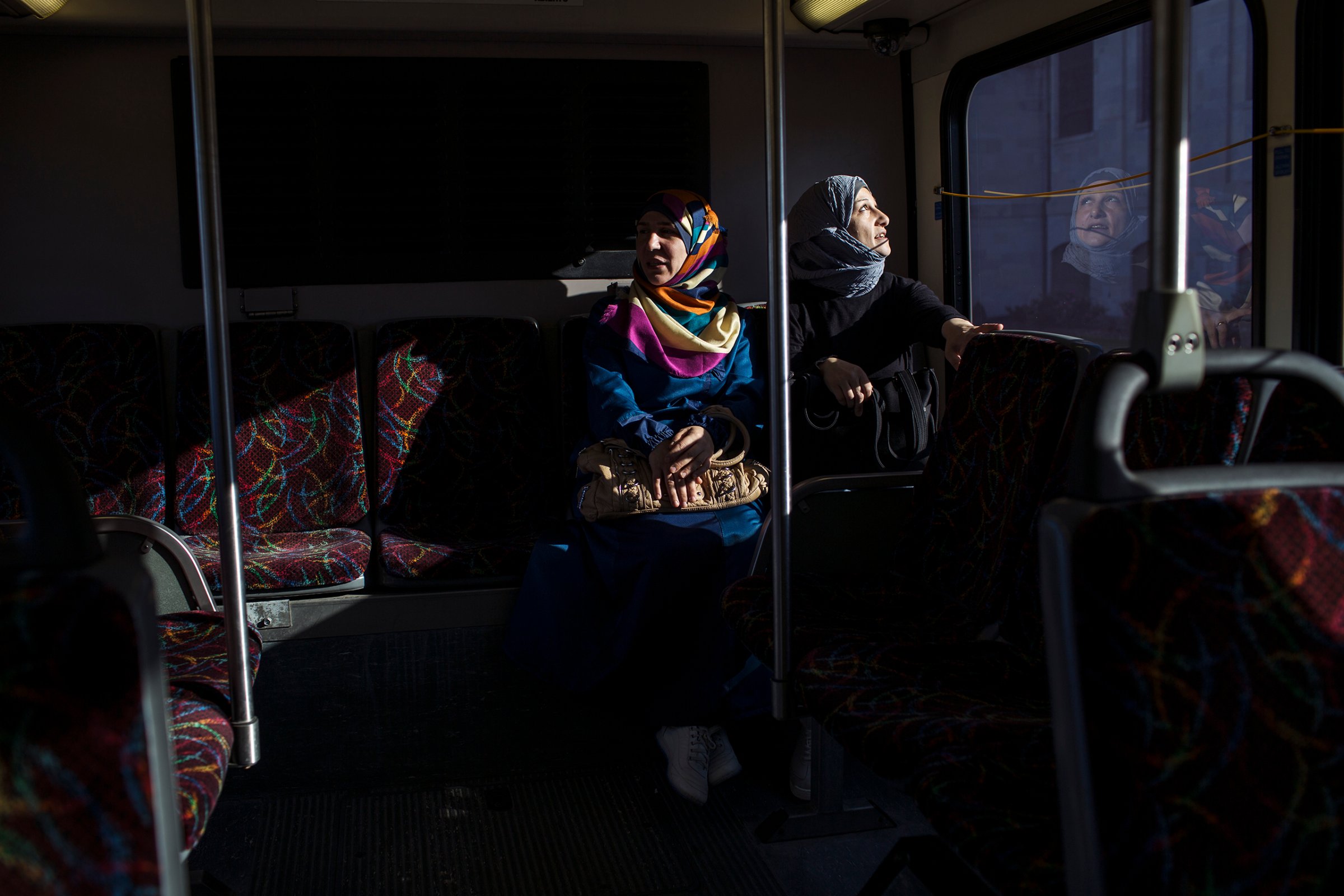
Danny Wilcox Frazier, a documentary photographer based in Iowa, spent two days with the first Syrian refugee family to be resettled in the Hawkeye State. For TIME, he writes about his experience.
Abdul Fattah Tameem had forgotten his wedding anniversary, but his wife, Ghazweh Aljabooli, did not seem frustrated by it, and she did not protest when Abdul Fattah and their eldest son, Nazeer, left the family’s thinly furnished apartment to walk to the neighborhood supermarket to buy cake and fruit for a last-minute celebration.
After the trip to the store, Abdul Fattah watched his three sons play a lively soccer match in the driveway of their apartment complex before the four returned inside. That’s when the music started. Ghazweh pulled her husband to the center of the family room and, as the couple danced, their five children—Nazeer, 15; Sedra, 13; Haidar, 11; Mutaz and Hala, both six—clapped and cheered while taking pictures with their smartphones. Ghazweh then led her husband behind the dining room table and the two, sharing a knife, cut the cake to further cheers and the flash of my camera.
It was joyous and carefree, and a moment that, for many years, these parents thought might never come.
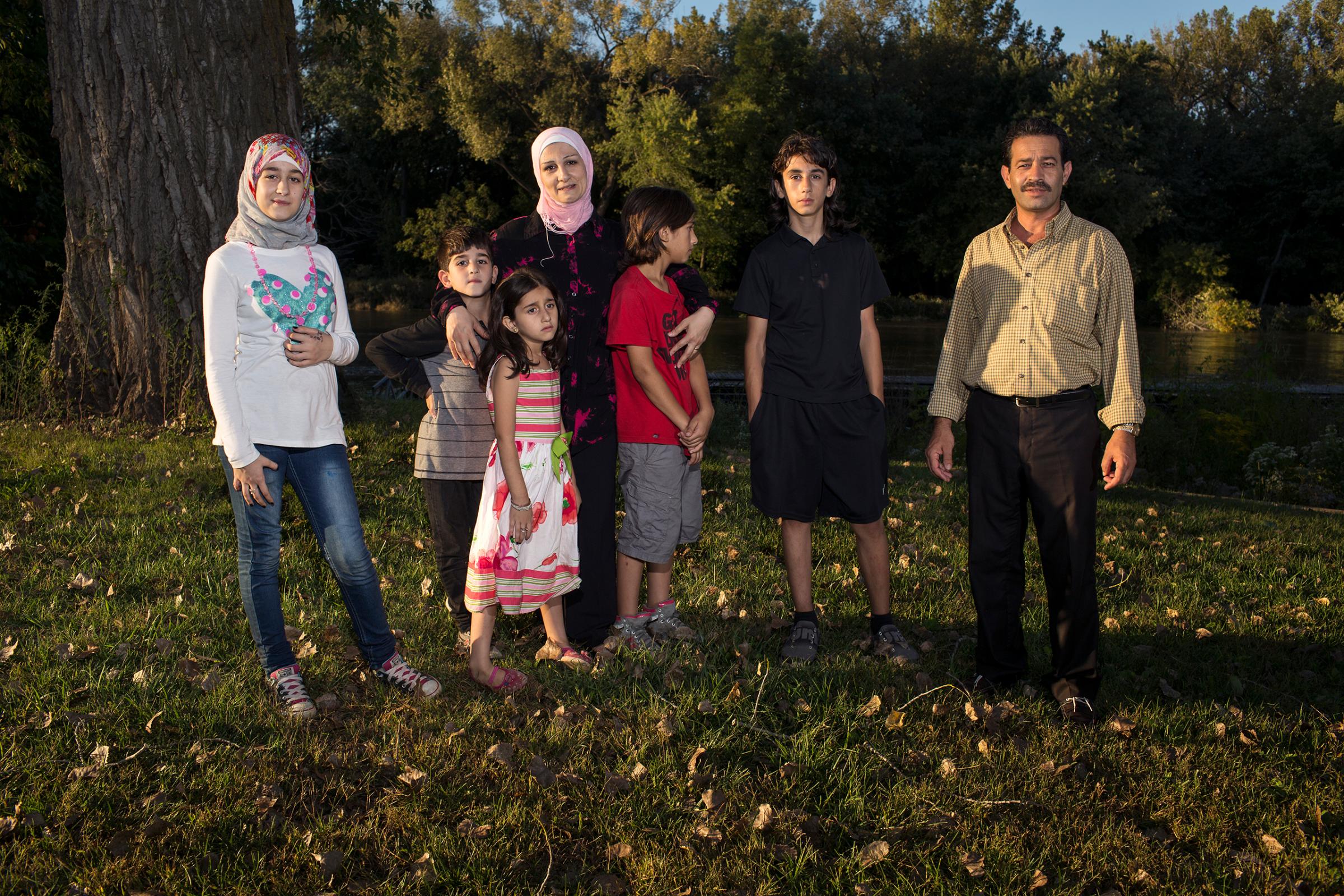
Ghazweh, Abdul Fattah and their five children are refugees from the war in Syria and were the first Syrian family to be resettled by the U.S. Committee for Refugees and Immigrants in Des Moines, Iowa.
Their hometown of Homs has seen some of the most devastating bombing of the war. Survival there seemed impossible so Ghazweh and Abdul Fattah took their children and escaped. The fighting followed them from city to city over the next two years while they moved around as internally displaced people in Syria. Left with no option, the family sought safety in Jordan and finally in Iowa, a Midwestern state with a history of welcoming refugees.
Read more: The Syrians Next Door
That record has now been thrown into question. In a climate of intolerance encouraged by the Republican presidential campaign of Donald Trump, more than half of the nation’s governors, including Iowa’s Terry Branstad, have worked to ban Syrian refugees from their states due to concerns that terrorists have infiltrated refugee ranks. Gov. Branstad directed state agencies late last year to stop processing Syrian refugees. It was a largely symbolic political move though because states cannot mandate the placement of refugees (in June the federal government settled the Tameem family in Des Moines.)
The apartment complex the Tameems live in is filled with refugees from a variety of countries. I chatted with people from Kenya, Tanzania and Uganda. In the halls and on the lawn out front, a visitor can hear a broad mix of languages—Arabic, Kiswahili, French and Spanish—and see cultures living side by side. The Des Moines public school system is charged with integrating refugee children and they’re some of the most diverse institutions I have seen in the U.S.
Yet, the transition for the Tameem family has not been easy. Iowa’s urban areas are not known for efficient public transportation and Abdul Fattah’s commute to work at a West Des Moines hotel takes hours. Ghazweh also rides the bus to ESL classes, much of her morning spent waiting, riding and walking to a community college’s satellite campus. “In Syria I die once, here I’m dying every day,” Abdul Fattah told me through an interpreter. He shows me photographs of Homs, which before the war was the third-largest city in Syria. Abdul Fattah was raised there, and he speaks of his home with pride. He dreams of one day returning and rebuilding, though for now, he says, “the only positive thing is my kids are safe, this is essential.”
Ghazweh cried while speaking to me about the struggles she and her husband endured to keep their children safe, but couldn’t contain her excitement in light of their present situation. She let me know her children are “so happy with their schools,” all five kids smiling and agreeing with their mother while sitting nearby. Ghazweh is clear in her desire to raise her family in the U.S. Her eyes light up when she considers her dreams of a future here. “I want my kids to learn English. I want them to have American friends and stay with Americans,” Ghazweh tells me.
For several days while on this assignment, I ate and drank coffee with Ghazweh and Abdul Fattah, their hospitality a reminder of the many kitchens around the world I have been invited into. Often long travel is necessary for my work as a photographer. To make these photographs that was not the case. I live in Iowa and was raised just three hours east of Des Moines in a small town along the Mississippi River.
While sitting at the family’s dining room table I thought maybe Iowa’s Governor could take the time to share a meal with Ghazweh and Abdul Fattah and their children. Gov. Branstad could learn first hand the love these parents have for their kids and better understand the sacrifices they have endured. The Governor’s trip to the family’s apartment would be much shorter than Abdul Fattah’s bus ride to work. For him it would take just minutes.
Danny Wilcox Frazier is a documentary photographer based in Iowa. He is represented by VII Photo.
Andrew Katz, who edited this photo essay, is TIME’s International Multimedia Editor. Follow him on Twitter @katz.
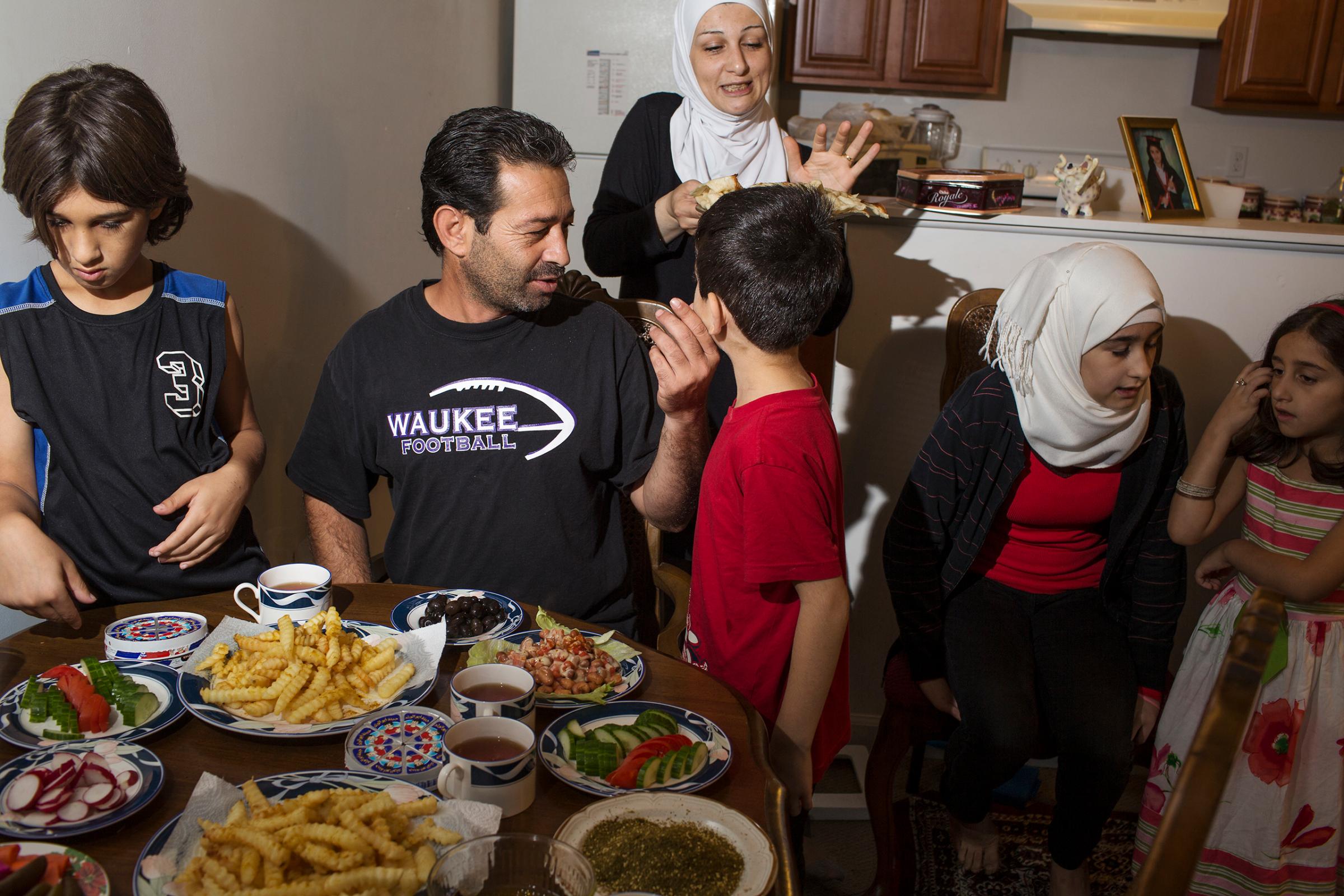
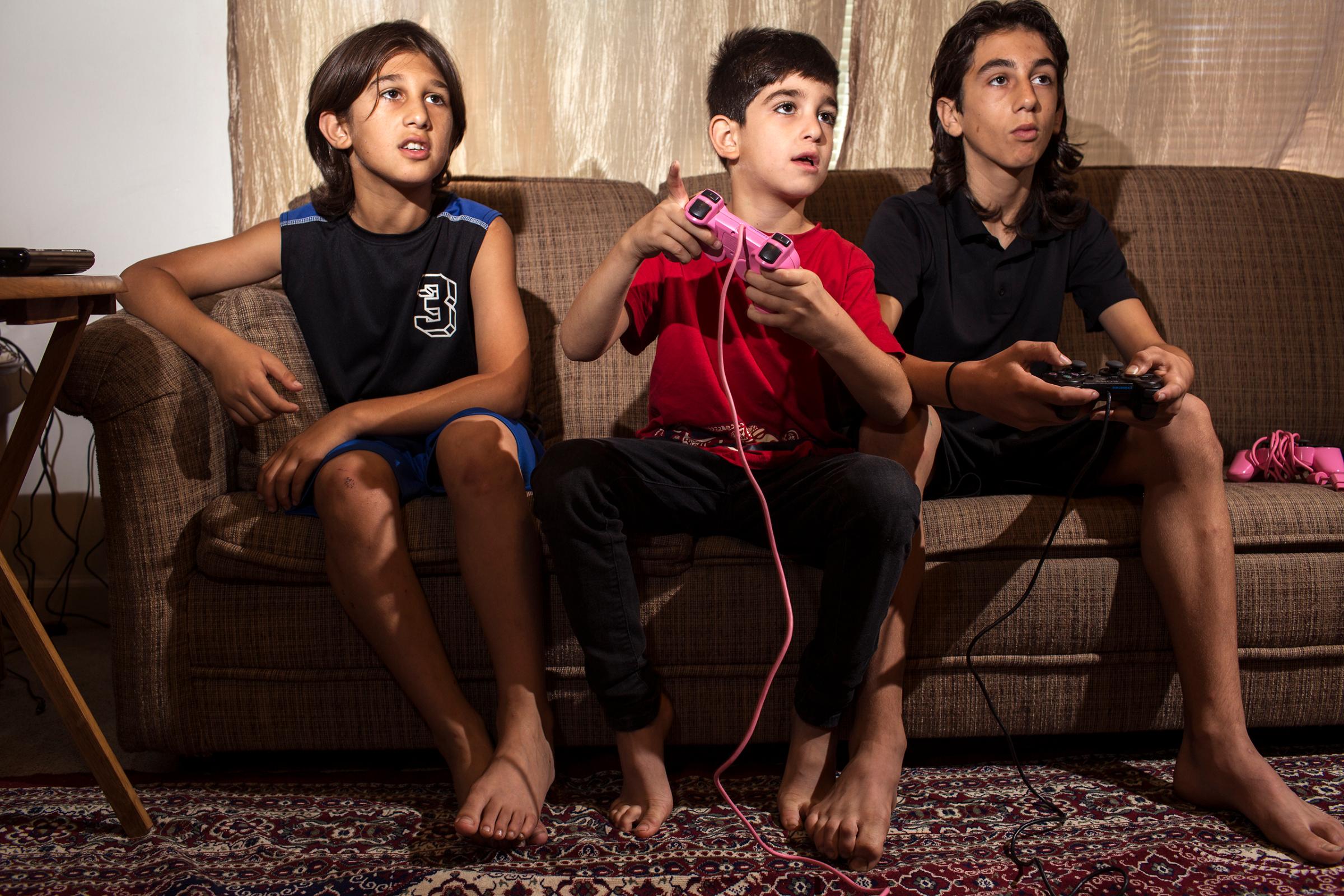
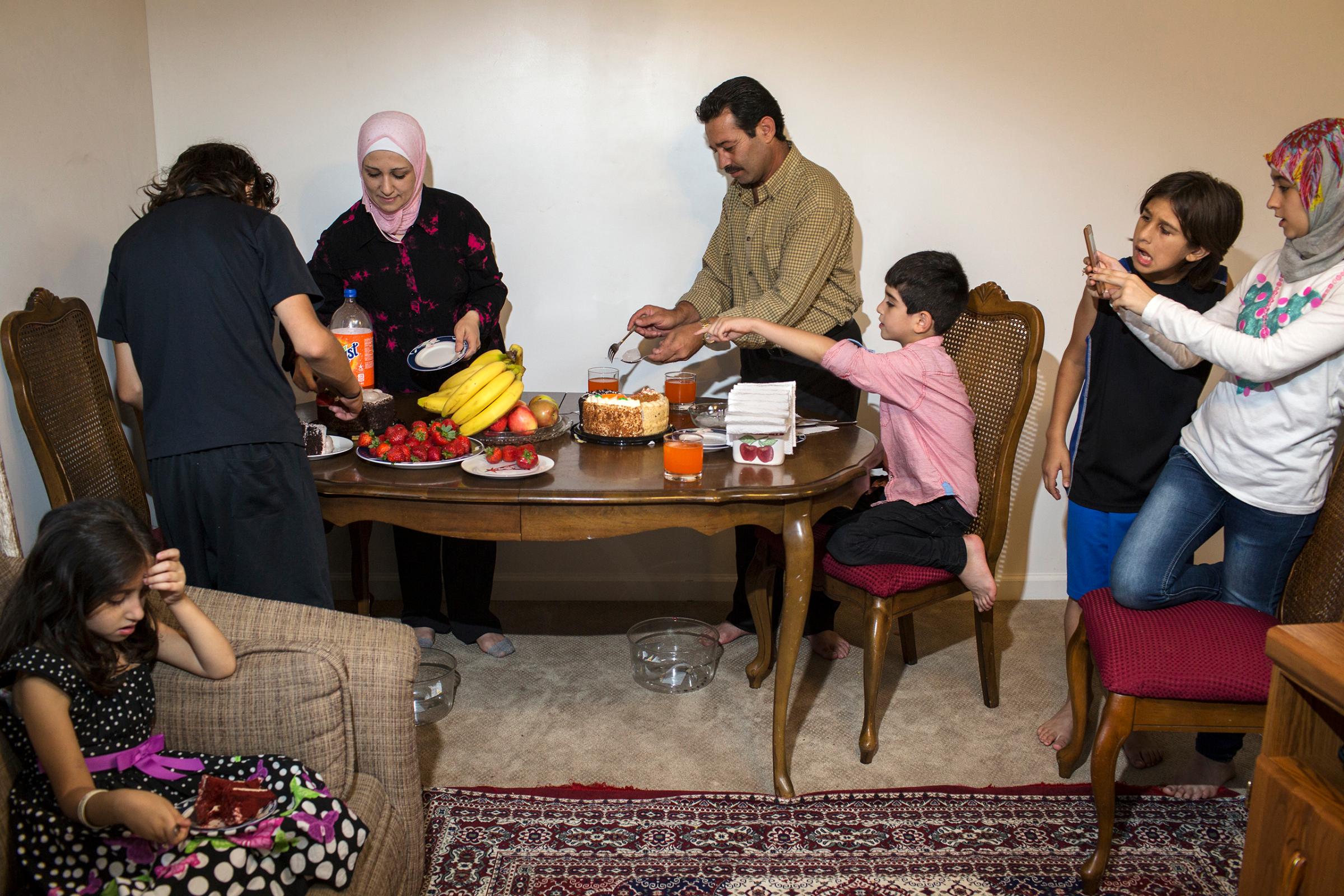
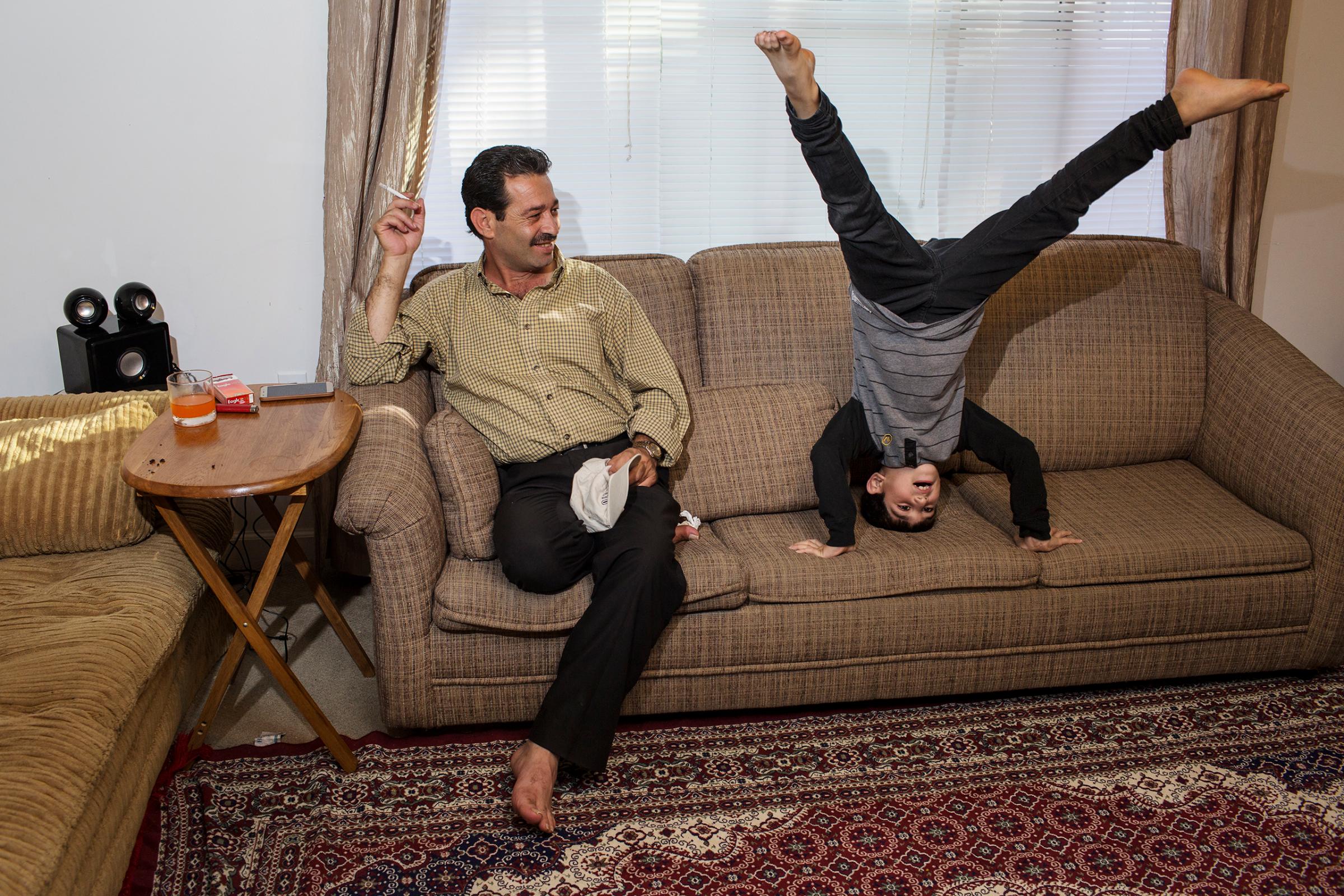
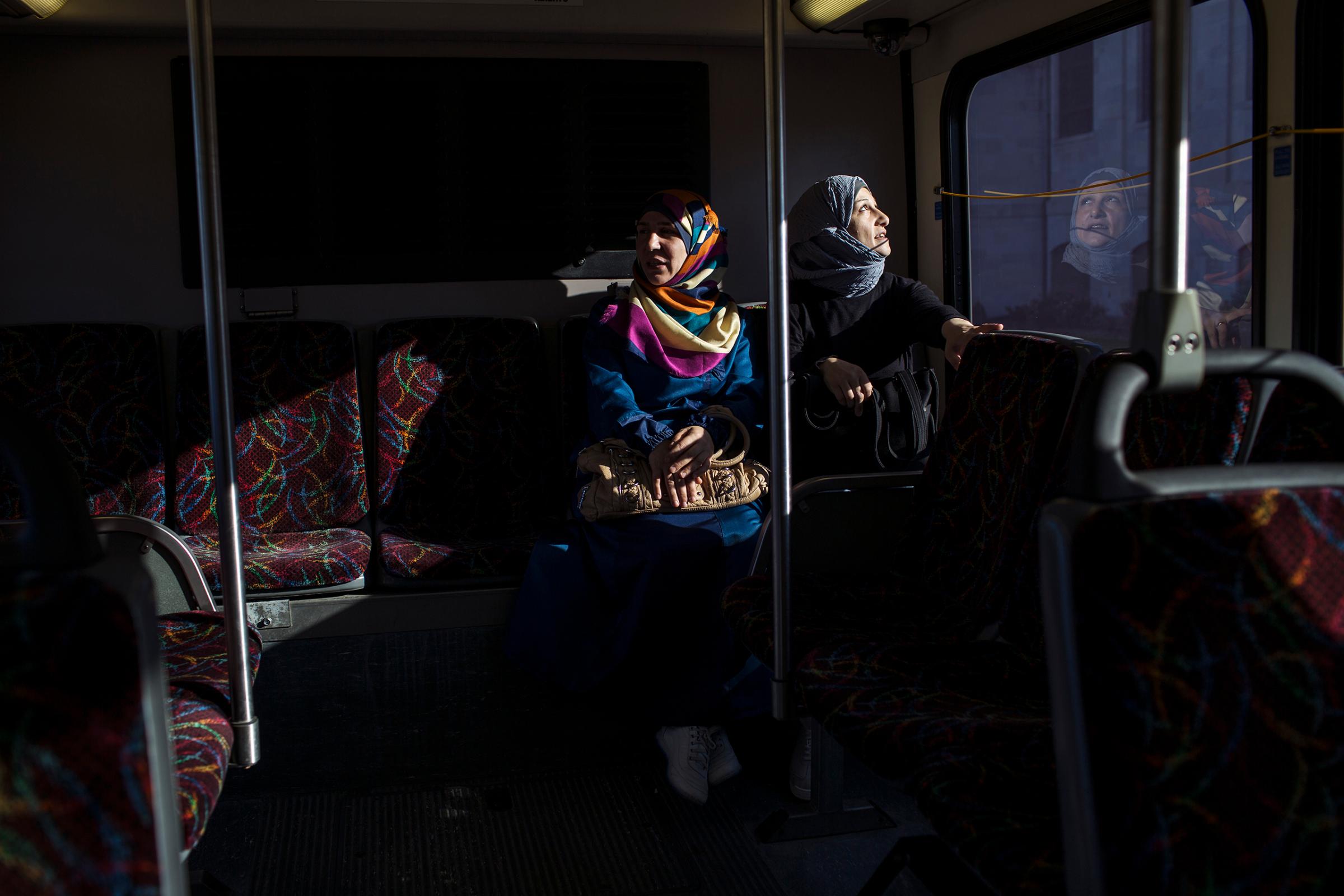
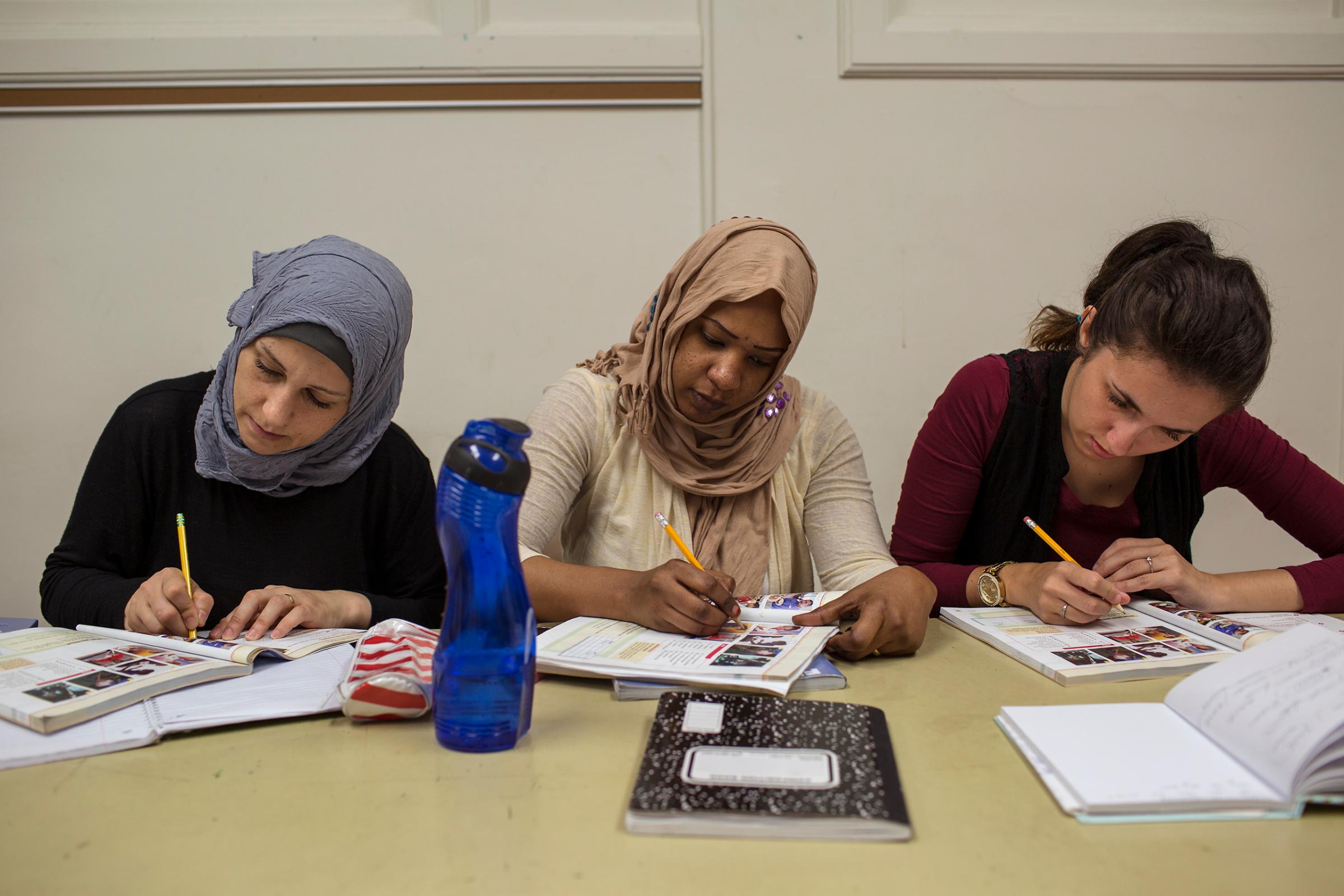
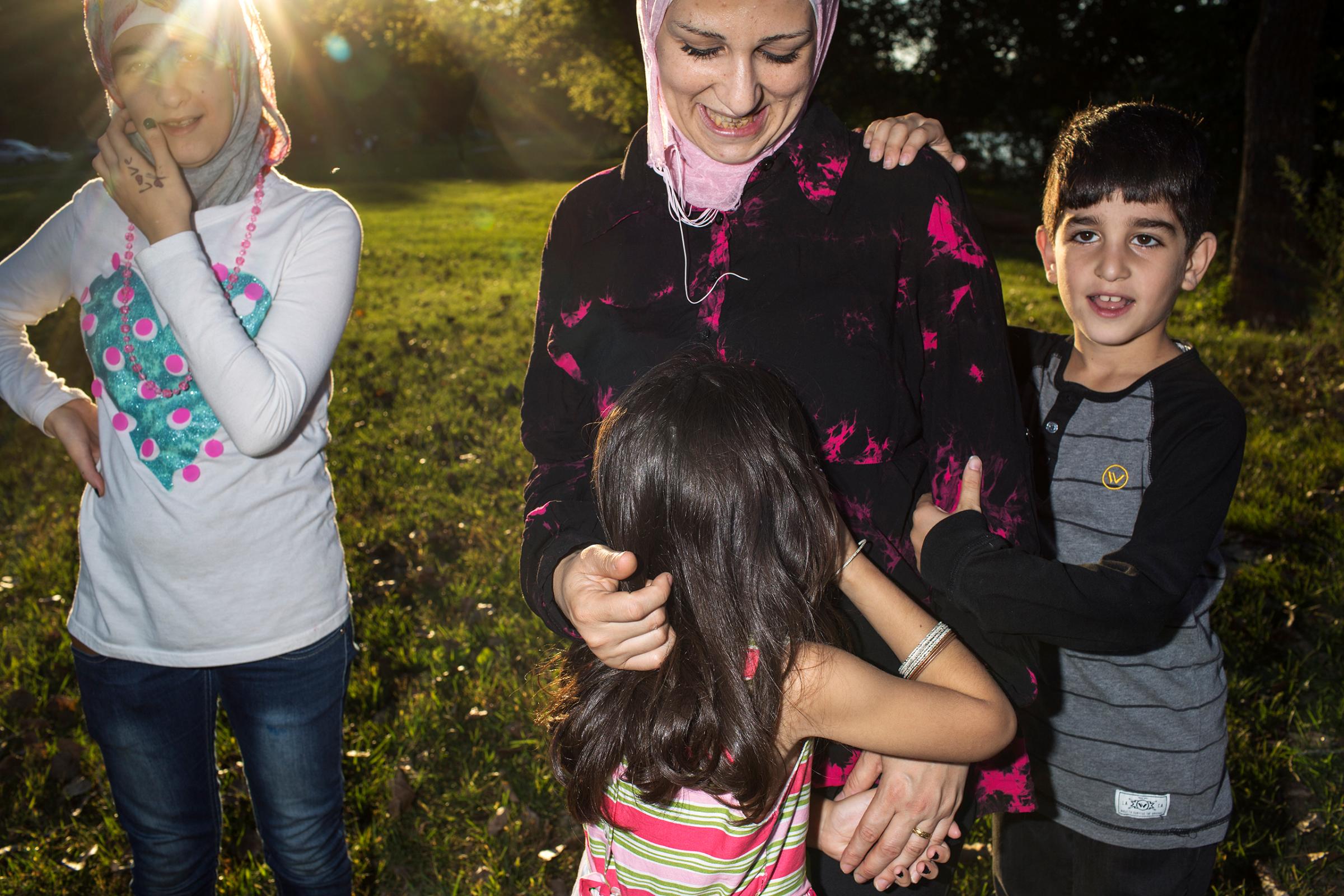
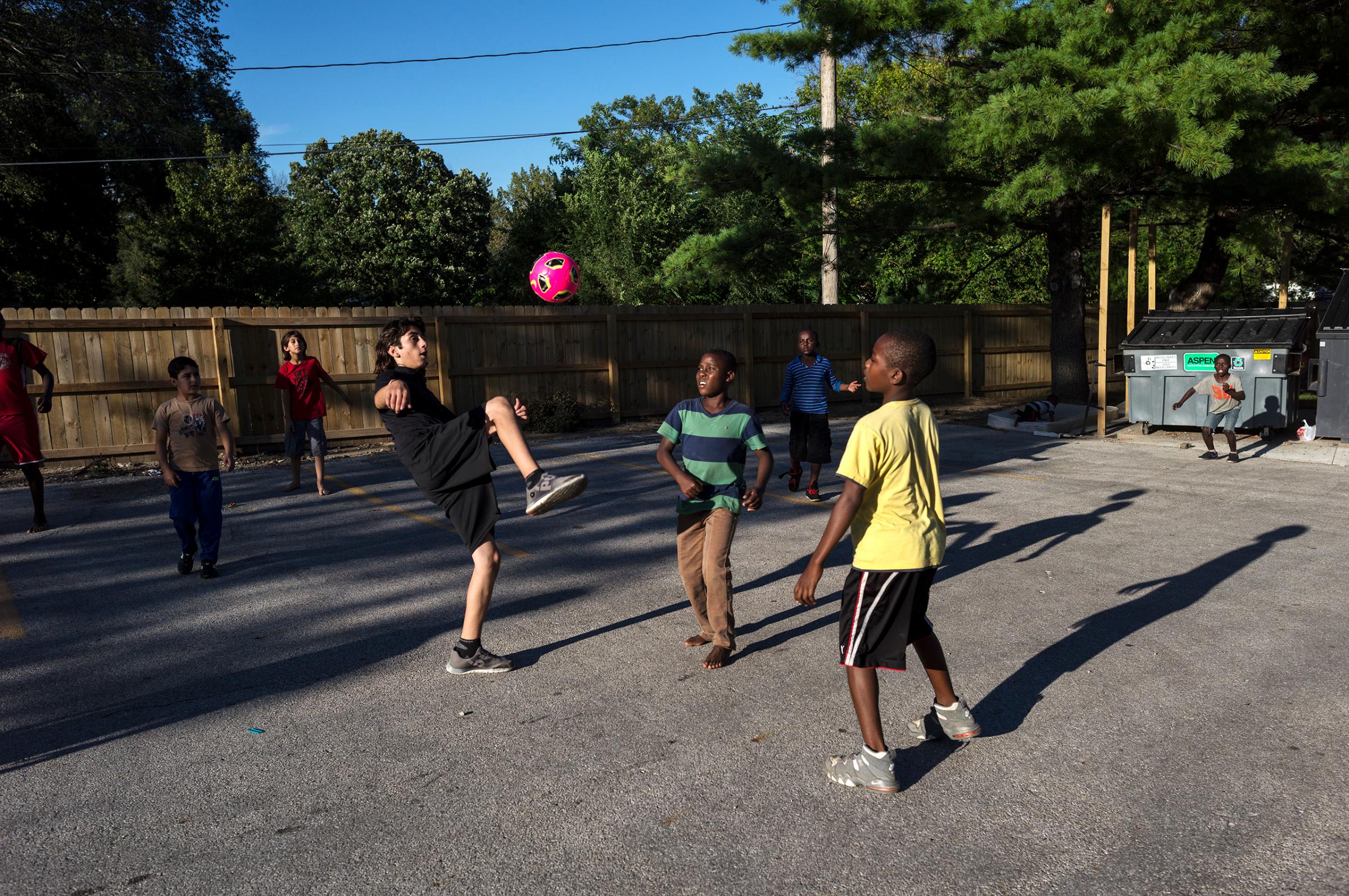
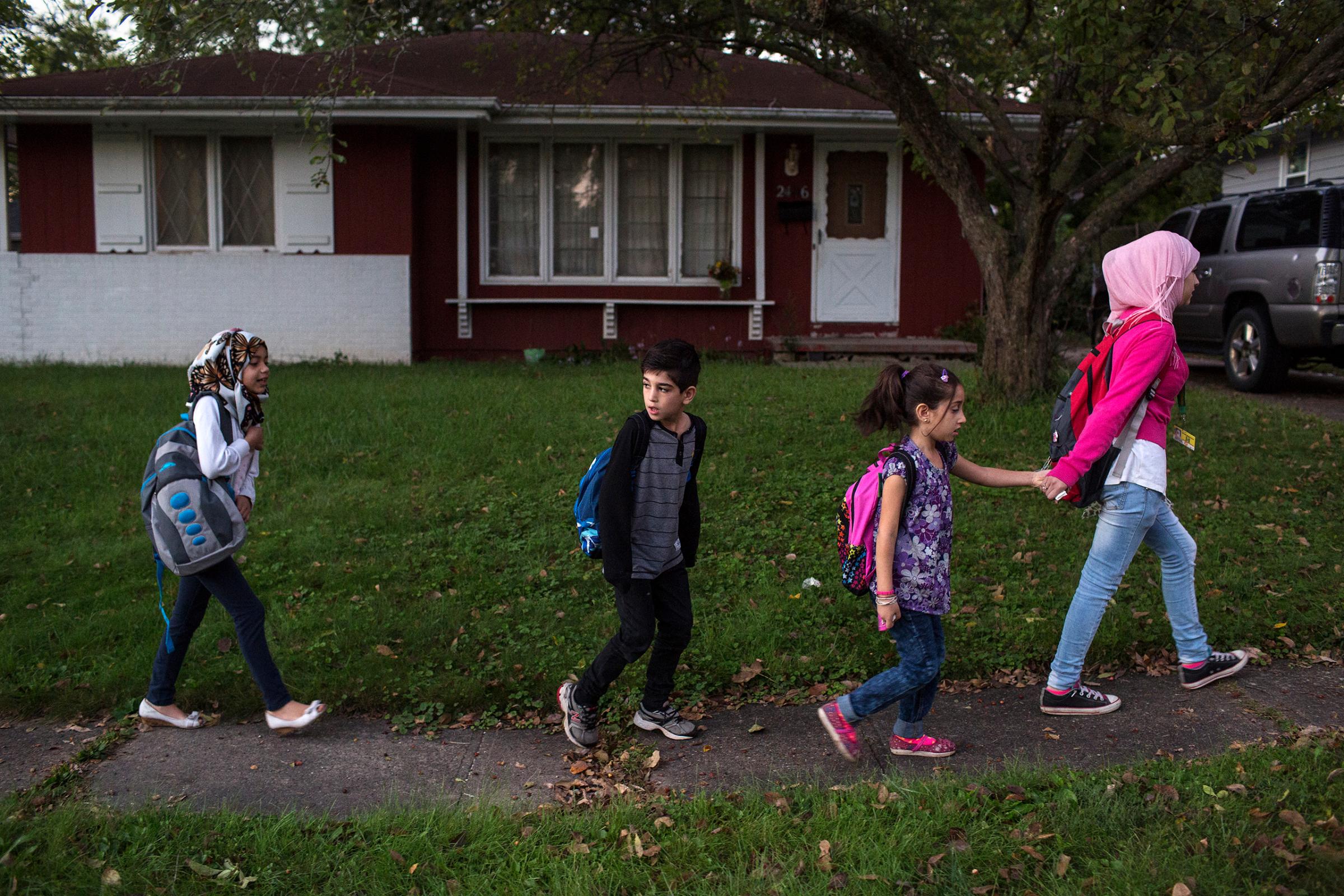
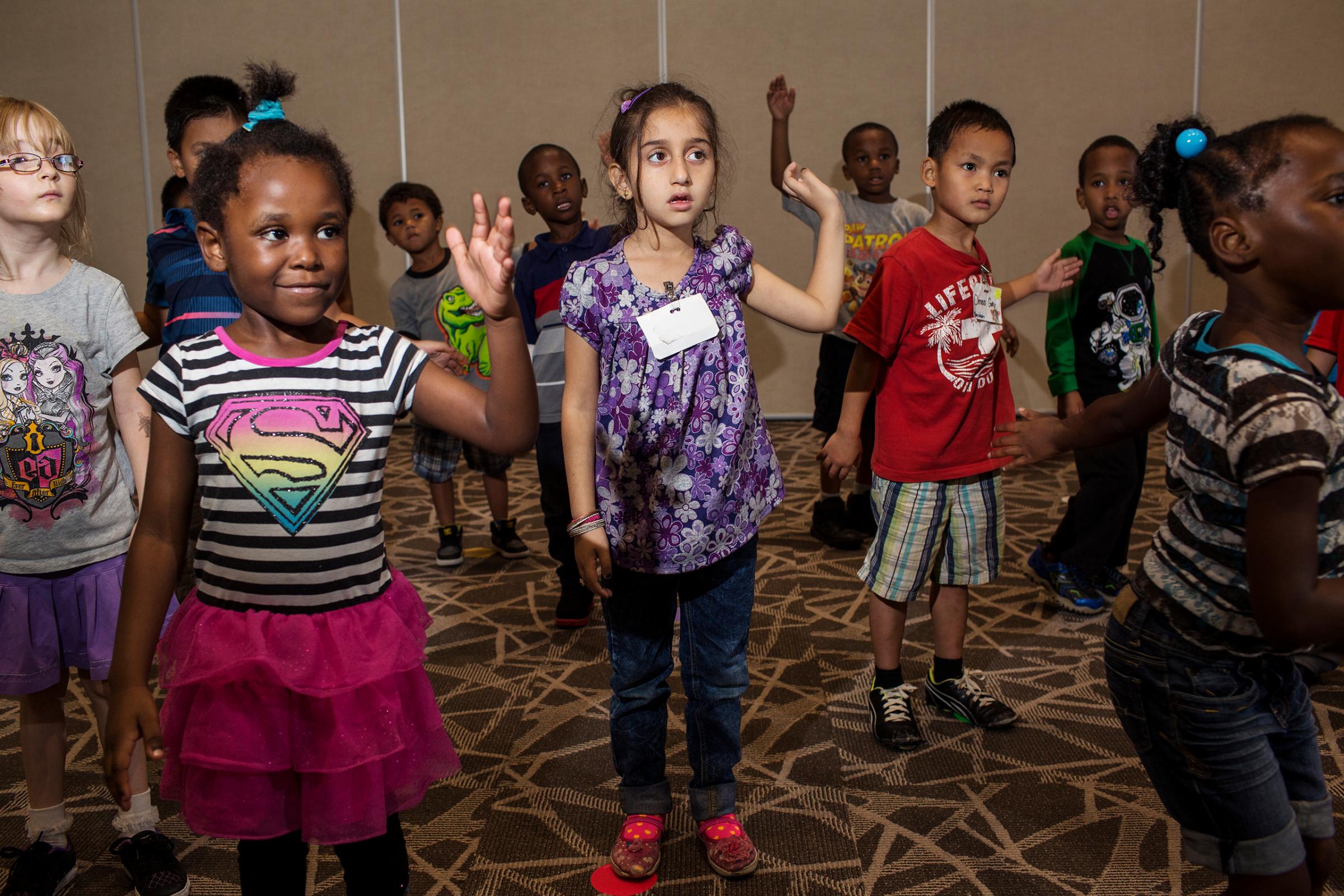
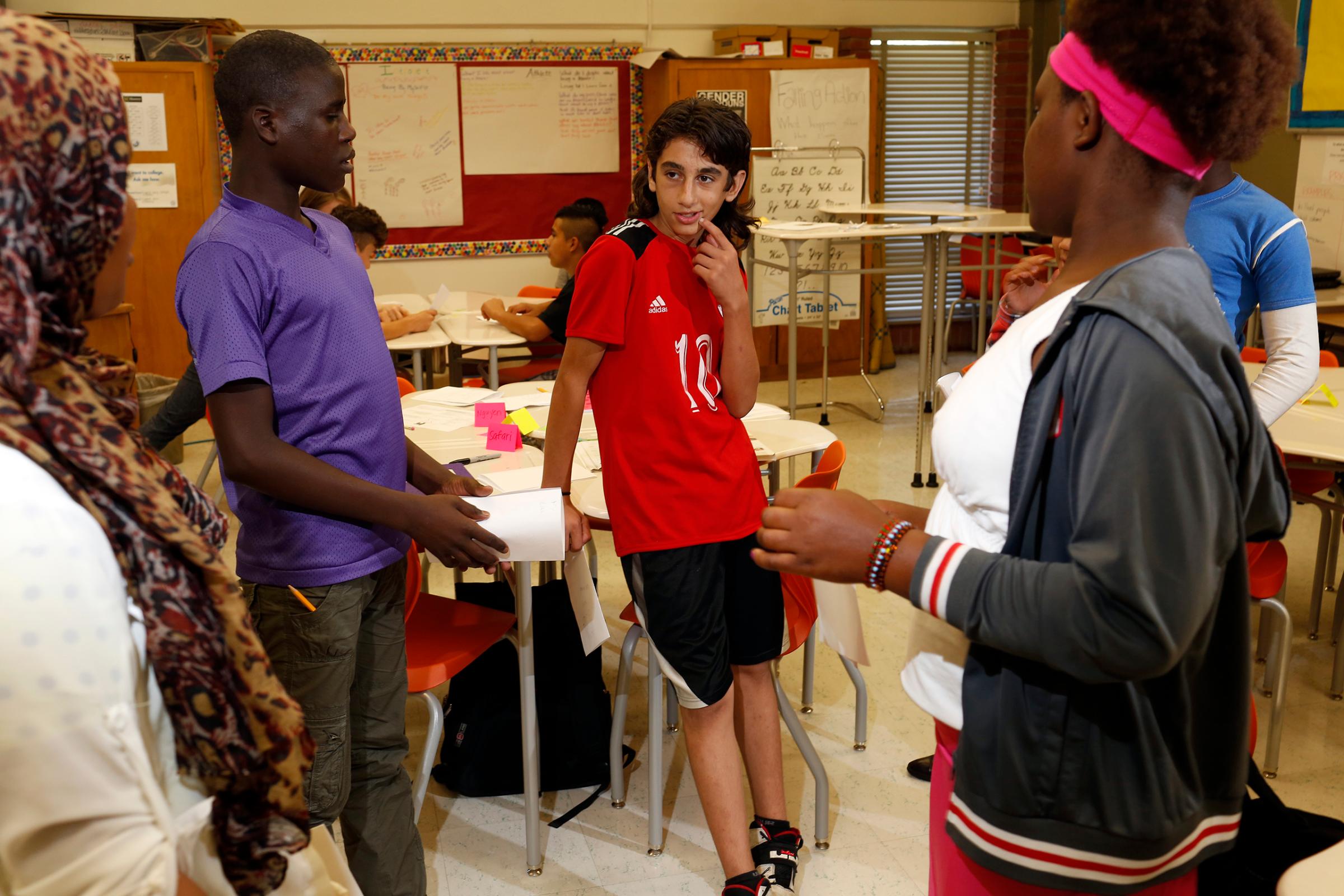
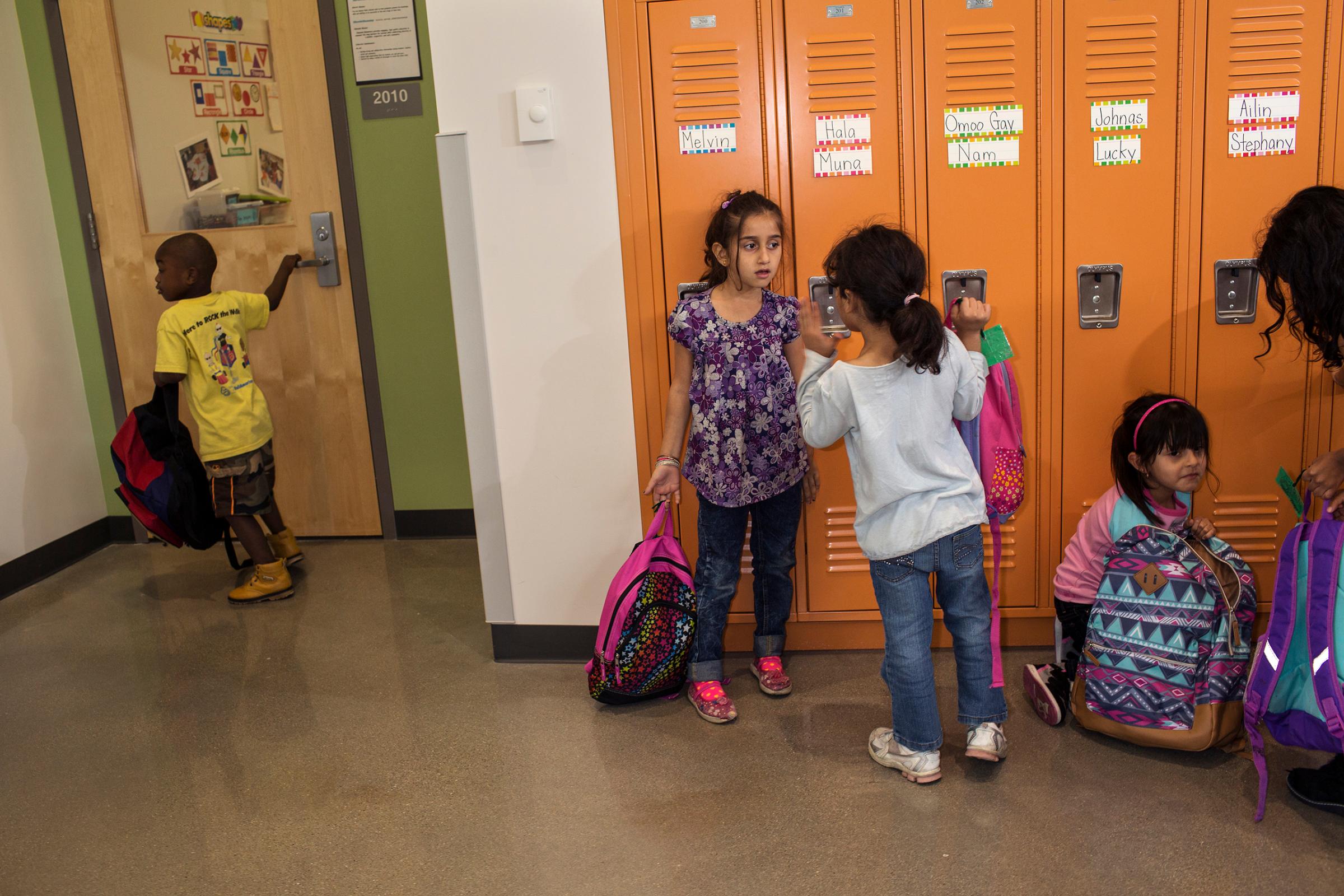
More Must-Reads from TIME
- Donald Trump Is TIME's 2024 Person of the Year
- TIME’s Top 10 Photos of 2024
- Why Gen Z Is Drinking Less
- The Best Movies About Cooking
- Why Is Anxiety Worse at Night?
- A Head-to-Toe Guide to Treating Dry Skin
- Why Street Cats Are Taking Over Urban Neighborhoods
- Column: Jimmy Carter’s Global Legacy Was Moral Clarity
Contact us at letters@time.com